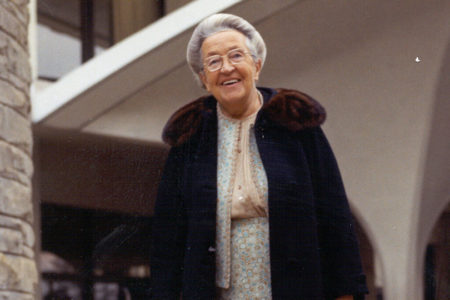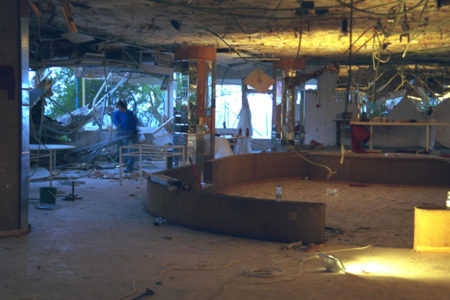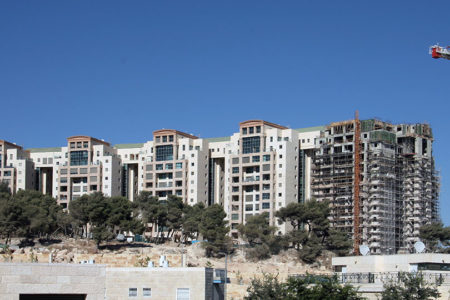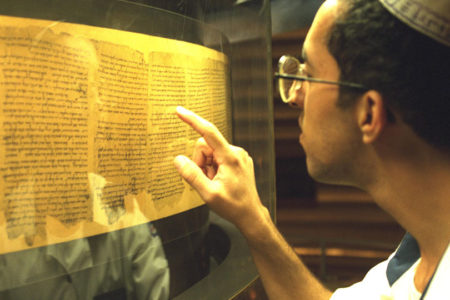Messiah’s Glorious Return
Zechariah 14:1–7
Zechariah closed his prophetic predictions with a sweeping consummation of Israel’s future. The prophet described three major events that will take place: (1) a future invasion of Jerusalem during the Great Tribulation, (2) the destruction of the Gentile invaders at the Messiah’s Second Advent, and (3) the establishment of His Millennial Kingdom. After the Lord’s return, Jerusalem will be exalted and become the center of worldwide worship. These prophecies presuppose Israel’s existence as a sovereign nation in the last days.
This chapter focuses on God’s plan for an elect, preserved, and redeemed Israel. God has not forsaken the covenants He made with the Jewish nation and will bring to fruition everything He has ordained for the Jewish people.
Massive Attack
Zechariah’s prophecy begins with a description of Jerusalem’s suffering in the Day of the Lord:
Behold, the day of the Lᴏʀᴅ is coming, and your spoil will be divided in your midst. For I will gather all the nations to battle against Jerusalem; the city shall be taken, the houses rifled, and the women ravished. Half of the city shall go into captivity, but the remnant of the people shall not be cut off from the city (vv. 1–2).
The time is the seven-year Tribulation, also called “the time of Jacob’s trouble” (Jer. 30:7). Near the midpoint of the seven years, a huge army from the north, south, and east will try to capture and plunder Israel, but God will destroy the invaders on the mountains of Israel (Ezek. 38—39).
The Tribulation closes with another attack on Israel. This time, the staging area is called Armageddon (Joel 3:9–16; Rev. 16:14, 16; 19:11–19). It is also called “the battle of that great day of God Almighty” (Rev. 16:14). All the armies of the world will converge on Israel with a twofold purpose: to destroy the Antichrist’s rule and annihilate Israel.
The king of the North will descend on Israel. At the same time, the king of the South will come with a confederacy from North Africa. Another group of kings from the East will come across the dried up Euphrates River to do battle. The Antichrist will sweep down with his armies from Western Europe to defend Israel and secure his holdings in the Middle East (Dan. 11:40–44; Rev. 16:12). This campaign will engulf all of Israel, covering a 200-mile radius, with Jerusalem as its center.
Although Joel did not use the term Armageddon, he was one of the first prophets to foretell the details of this battle. Joel said the nations will beat their agricultural implements into weapons and assemble themselves in the Valley of Jehoshaphat to do battle. Today the Valley of Jehoshaphat is called the Kidron Valley and is located between Jerusalem on the west and the Mount of Olives on the east.
The campaign of Armageddon will extend into three other areas: (1) Mount Megiddo, located at the southwest end of the Carmel mountain range and bordering the Jezreel Valley; (2) Edom, located southeast of Jerusalem (Isa. 34:6; 63:1–6); and (3) the whole country of Judah (Zech. 12:2–7; 14:2).
Zechariah described this siege vividly. Jerusalem will be captured; houses, ransacked and plundered; women, violently raped; and half of the population, exiled into slavery. Yet God will spare a remnant of Jerusalem’s population from this massive destruction (v. 2). As previously mentioned, two-thirds of the Jewish people in Israel will die during this invasion, but one-third will be miraculously spared to enter the Millennial Kingdom (13:8–9; Rom. 11:26). The one-third is a righteous Jewish remnant that survives the Battle of Armageddon. God will supernaturally protect these Jews from annihilation by the Antichrist (13:9; Rev. 12:14, 17).
Messiah’s Appearance
In Israel’s darkest hour, when once again Jerusalem seems to be marked for destruction and the Jewish people destined for exile, the Lord acts with divine intervention. At that time, said Zechariah, “The Lᴏʀᴅ will go forth and fight against those nations, as He fights in the day of battle” (v. 3). The phrase go forth (go out) is a technical term for a king going to do battle with his enemy. The Lord is pictured here as a warrior coming swiftly to Israel’s side in order to defeat its enemies (Ex. 15:3; Isa. 42:13). If it were not for this promise, the small remnant left in Jerusalem might have despaired.
Awesome will be the appearance of the Lord! Suddenly He will appear in the clouds, and the brightness of His glory will illumine the universe (Mt. 24:30). Messiah is coming, seated on a white horse as a Warrior-King in battle array, coming in righteousness to judge and make war against the Antichrist, the false prophet, and all who follow them into battle against Israel (Rev. 19:11). He is coming to judge the rulers of darkness and reclaim the earth from Satan’s control. The white horse symbolizes the Messiah’s glorious victory over His enemies.
His eyes will be like a “flame of fire” (v. 12), indicating a penetrating gaze that will flash with intelligence, righteousness, and the look of divine wrath upon the wicked. He will wear “many crowns” (v. 12), denoting His royalty and majesty as sovereign King and Lord of heaven and Earth. He will not come alone, but the armies in heaven will follow Him on white horses. They will be clothed in fine linen, clean and white, symbolizing righteousness (v. 14).
How will the armies that invaded Israel react at the Messiah’s appearing? King David said,
The kings of the earth set themselves, and the rulers take counsel together, against the Lᴏʀᴅ and against His Anointed [Messiah], saying, “Let us break Their bonds in pieces and cast away Their cords from us” (Ps. 2:2).
Their first response will be to fight Him in hope of destroying Him; but they will be no match for the Lord. Out of His mouth will come a sharp sword that He will use to destroy these rulers and their armies (Rev. 19:15). This sword refers to the Messiah’s Word that proceeds from His mouth. As the Warrior-King, He will simply speak; and His Word will consume the Antichrist and his armies.
The apostle John tells us the Messiah’s “robe [is] dipped in blood” (v. 13). This is not His blood, but the blood of His enemies. “He Himself [Messiah] treads the winepress of the fierceness and wrath of Almighty God” (v. 15; cf. Isa. 63:1–3).
In other words, this massive army will look like grapes crushed in a winepress after the Lord destroys it. The carnage will reach “up to the horses’ bridles” (about five feet high) and cover an area “one thousand six hundred furlongs” (about 200 miles, Rev. 14:20). In contrast, the garments of His armies will be spotless; Messiah alone will fight and gain this victory.
Messiah’s Arrival
Once the Messiah intervenes militarily on Israel’s behalf, His feet will touch the Mount of Olives:
And in that day His feet will stand on the Mount of Olives, which faces Jerusalem on the east. And the Mount of Olives shall be split in two, from east to west, making a very large valley; half of the mountain shall move toward the north and half of it toward the south (Zech. 14:4).
This earthquake is connected to the seventh bowl judgment in Revelation 16:18–19. The newly formed valley will enlarge Jehoshaphat’s Valley, where God will judge the Gentile nations that survive the Great Tribulation (Joel 3:2; Mt. 25:31–46).
Millennia ago, as the Lord ascended back to heaven after 40 days of His postresurrection ministry, an angel prophesied that He would return in like manner to the same spot on the Mount of Olives (Acts 1:9–12). Note that these verses emphasize the physical, personal, public, literal, and visible return of the Messiah back to Earth in His glorified body.
Zechariah continued: “Then you shall flee through My mountain valley, for the mountain valley shall reach to Azal. Yes, you shall flee as you fled from the earthquake in the days of Uzziah king of Judah” (v. 5). The split will create a massive valley running eastward to Azal. Although Azal’s location is unknown today, it probably will mark the end of this newly formed valley east of Jerusalem.
Zechariah compared the earthquake’s severity to an earthquake two centuries earlier, in King Uzziah’s day (Amos 1:1). The future earthquake will produce a valley large enough to allow a remnant of Jewish people to flee from the holocaust taking place in Jerusalem.
A host of saints will accompany the Messiah on His return. Overjoyed at the coming of the Messiah, Zechariah cried out, “Thus the Lᴏʀᴅ my God will come, and all the saints with You” (v. 5). The saints are Old Testament saints (Dan. 12:1–2; Jude 14–15), church saints (Rev. 19:8), and Tribulation saints martyred for their faith (7:13–14; 20:4). All will return in their glorified bodies, with the Messiah.
Just before the Messiah’s return, phenomenal changes will occur in the heavens:
It shall come to pass in that day that there will be no light; the lights will diminish. It shall be one day which is known to the Lᴏʀᴅ—neither day nor night. But at evening time it shall happen that it will be light (Zech. 14:6–7; cf. Mt. 24:29).
The word diminish means to “thicken, congeal, or become dense.” The celestial heavens will appear as dense, thick darkness immediately before the Lord returns. This day will be one of a kind; it will be difficult to distinguish between night and day. At “evening time,” or the end of this period of darkness, light will reappear. The darkness will end with the light of heaven being restored to an even greater intensity when the Lord appears. Matthew wrote, “Then the sign of the Son of Man will appear in heaven,…and they will see the Son of Man coming on the clouds of heaven with power and great glory” (Mt. 24:30). When the Messiah returns, His glory will light the heavens with greater intensity than has ever been seen on Earth.
The apostle John tells us that the Lord’s return will be a worldwide event: “Every eye will see Him….And all the tribes of the earth will mourn because of Him” (Rev. 1:7; cf. Mt. 24:30). Two groups of Earth dwellers will mourn at the Lord’s coming: Those who are unsaved will intuit their destiny and mourn over their impending destruction, and Jewish people will instantly receive the Lord as their Messiah and mourn over their sins (Zech. 12:10–14).
The Messiah’s glorious return will be a great day of rejoicing for Israel. In that day, Israel will experience redemption, victory over its enemies, and peace on earth.







